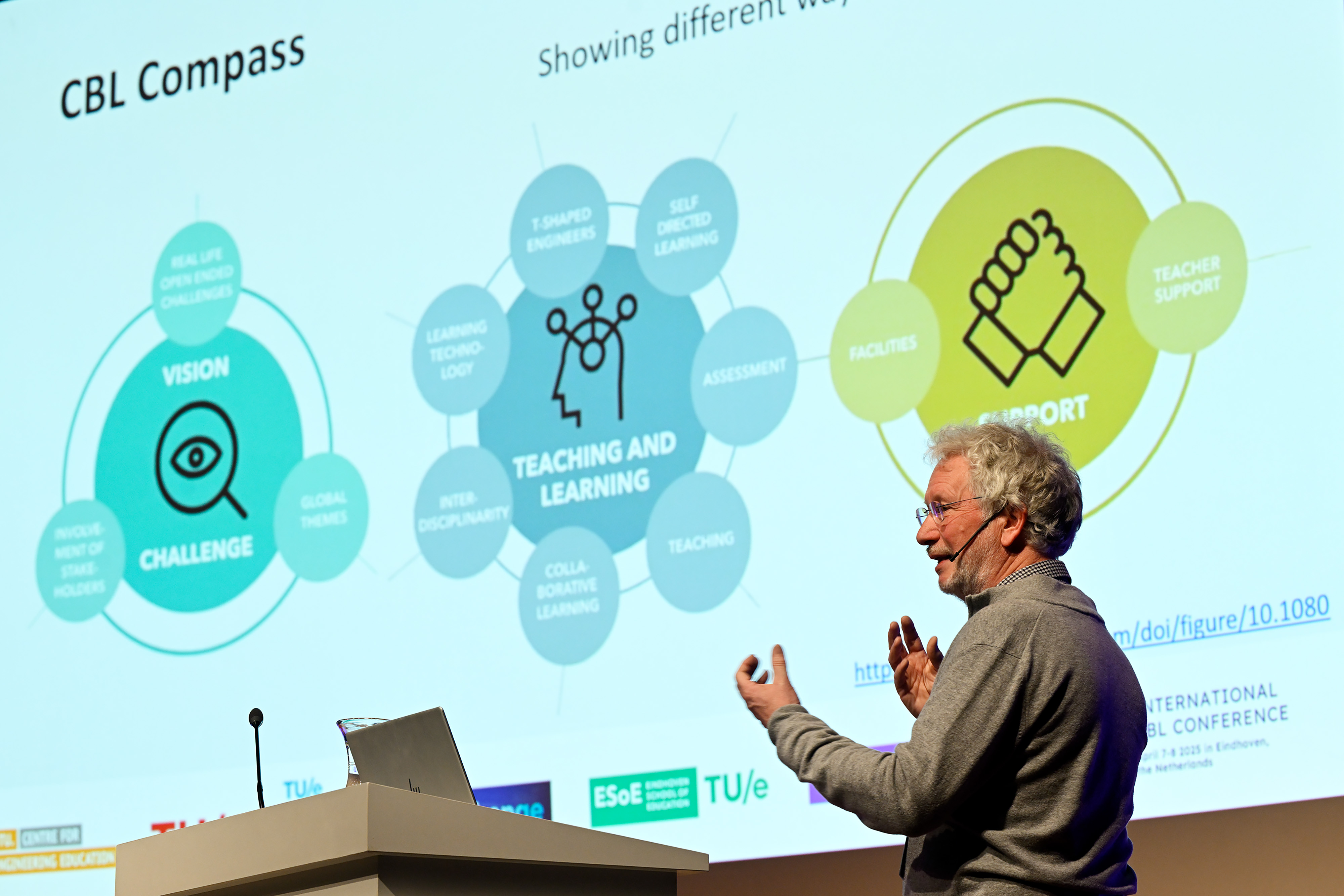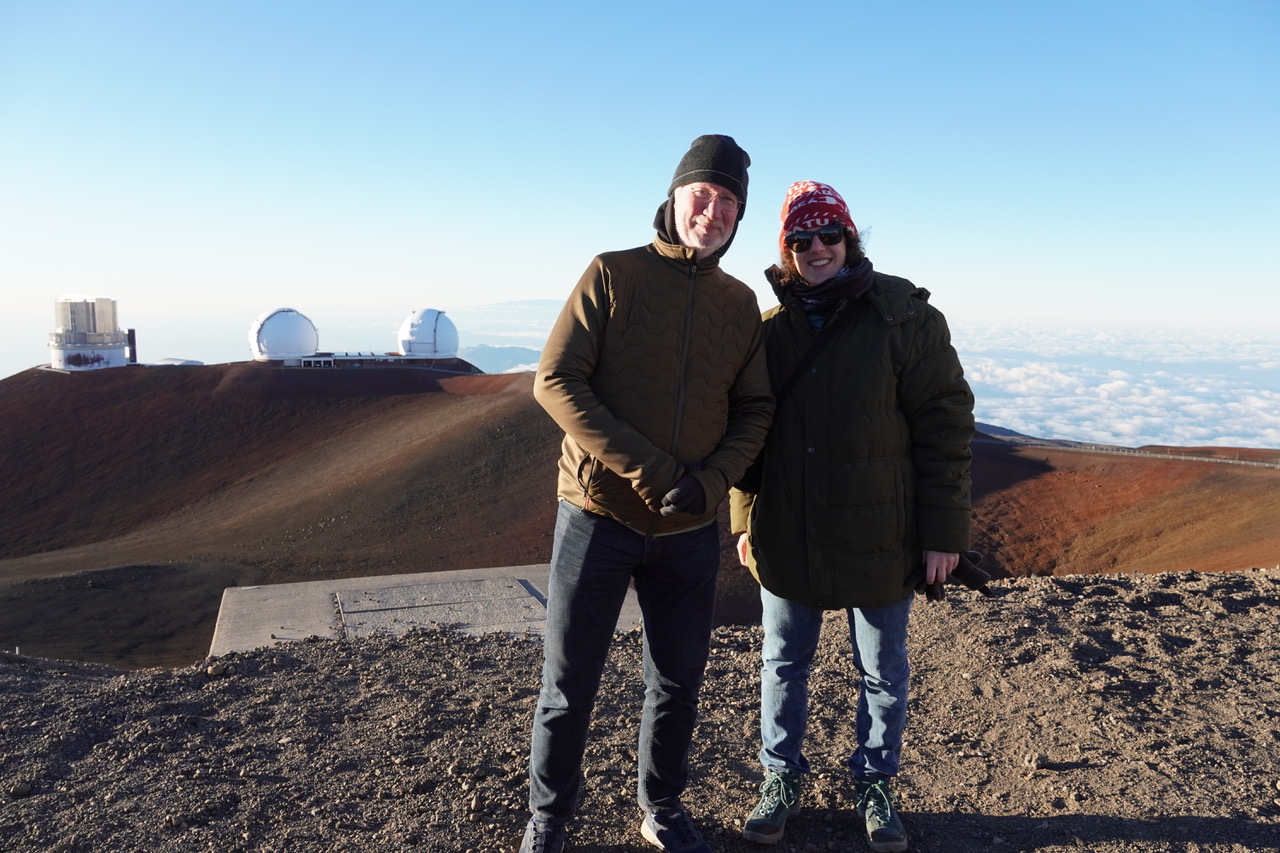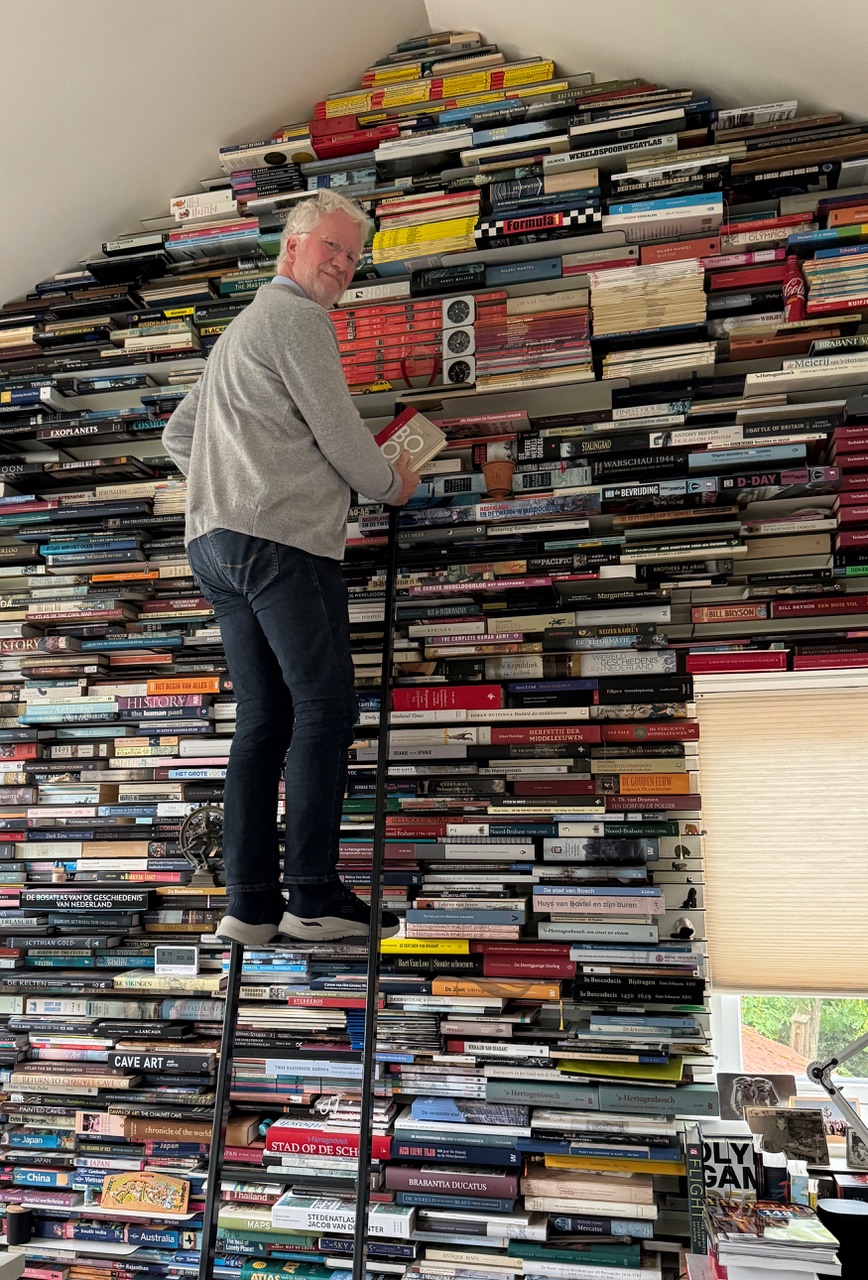
Paul Koenraad draws a line under his academic career
“Running to the finish line, then resting”
Professor Paul Koenraad, Dean of the Graduate School, will retire in November. From a passionate researcher and lecturer, he grew into an administrator who loves working with students, EngD candidates, and PhD candidates. His dedication was always sky-high.
After nearly forty years at TU/e, Professor Koenraad, who also serves as Dean of the Graduate School, feels it’s time to move on. “I’m glad I can finally start doing other things. It was a job that demanded more than a hundred percent of my energy. Like many of my colleagues here, I have a strong sense of drive and responsibility. We want to make progress and achieve results. The cycle of adrenaline and dopamine dominates life at TU/e, which makes it easy to push your limits. TU/e has had my heart and soul for 39 years. Now it’s time for Paul.”
He will deliver his farewell lecture, titled Hora Est, on October 30. How is he wrapping up his career? “Running to the finish line, then resting.”
Born and raised in Vught, Koenraad studied Physics and Astronomy in Utrecht, where he graduated in experimental physics. His passion for astronomy never faded — he’s been chair of the astronomy association in Den Bosch for more than 35 years.
At the nanoscale
In 1986, Koenraad came to Eindhoven to join a newly established research group for semiconductors. By 1990, he had completed his PhD in physics. He then held a KNAW position while working as a visiting researcher at IBM Zurich. “What I learned there — essentially making atoms visible in semiconductor materials — remained an important part of my research domain throughout my career.”
At TU/e, Koenraad became an assistant professor, then an associate professor, and in 2006 a full professor of Spin Manipulation in Semiconductor Nanostructures. But the university asked more of him than just research and teaching. Together with Jan Fransoo, he was asked to help design the minor-major system, which gave bachelor’s students half a year to take courses at another department or even at one of the other 4TU universities. Koenraad was responsible for this system for ten years.
He later led the fledgling Honors Academy for five years. Initially open only to bachelor’s students, it was expanded on his initiative to include master’s students as well. The Honors Academy offers a select group of now more than a 150 motivated students the chance to work on their own (group) projects alongside their curriculum.
Triple dean
In 2016, Koenraad became vice-dean of the Department of Applied Physics. Eight years ago, then-Rector Frank Baaijens appointed him Dean of the Graduate School. By then, the minor-major system had evolved into the Bachelor College. The Graduate School was established to unite all master’s programs and the PhD and EngD programs. “For about six months, I was what they called a triple dean: of my department, the Honors Academy, and all TU/e master’s, pre-master’s, PhD, and EngD students. Fortunately, that was only a temporary situation — it wasn’t something you could keep up.”
Achievements
The professor is proud of his coaching experience, of co-developing the PhD Competence Profile with HRM, and of setting up the Personal Identity Training (PIT) together with students. PIT is a motivational test designed to help master’s students make well-considered choices for their further studies and careers.
“I take great pride in the way I’ve been able to work with students. Seeing that my supervision is appreciated means a lot — 33 of my 42 PhD candidates and postdocs are coming to visit me on my very last working day, October 31. They’re traveling from all over the world to be there.”
Koenraad cherishes the memories of students “who sometimes came in as boys and left as men.” That goes for women as well, he quickly adds. “Witnessing that growth in young people, during such an important stage of their lives, is wonderful.”
A pleasant surprise
Would he have done anything differently if he could go back? “If I had known I could build a career in academia, I might have chosen astronomy instead. The academic life turned out to be a pleasant surprise — I hesitated a lot before deciding to pursue a PhD. One of the things I’m considering now that I’m retiring is enrolling again as an astronomy student, this time in Leiden.”
Text continues below the photo.
Koenraad calls the end of his career “going from a hundred to zero.” But those who know him realize he’ll quickly fill his newfound free time. “Next month, my wife Anne-Marie and I are spending two weeks in southern France. In recent years, I’ve developed a fascination with Neolithic humans. In the Dordogne, I’ll be viewing cave paintings under the personal guidance of a specialist — fantastic! But that’s just one of my many passions. I’m also into old maps of Brabant and the 1629 siege of ’s-Hertogenbosch, model railways, steam trains, LEGO, and collecting original documents and memorabilia related to the organization and venues of the Olympic Games.” There will also be time for traveling with the new caravan and playing golf.
Cursor will report on Paul Koenraad’s successor once the appointment has been officially confirmed.
This article was translated using AI-assisted tools and reviewed by an editor.



Discussion